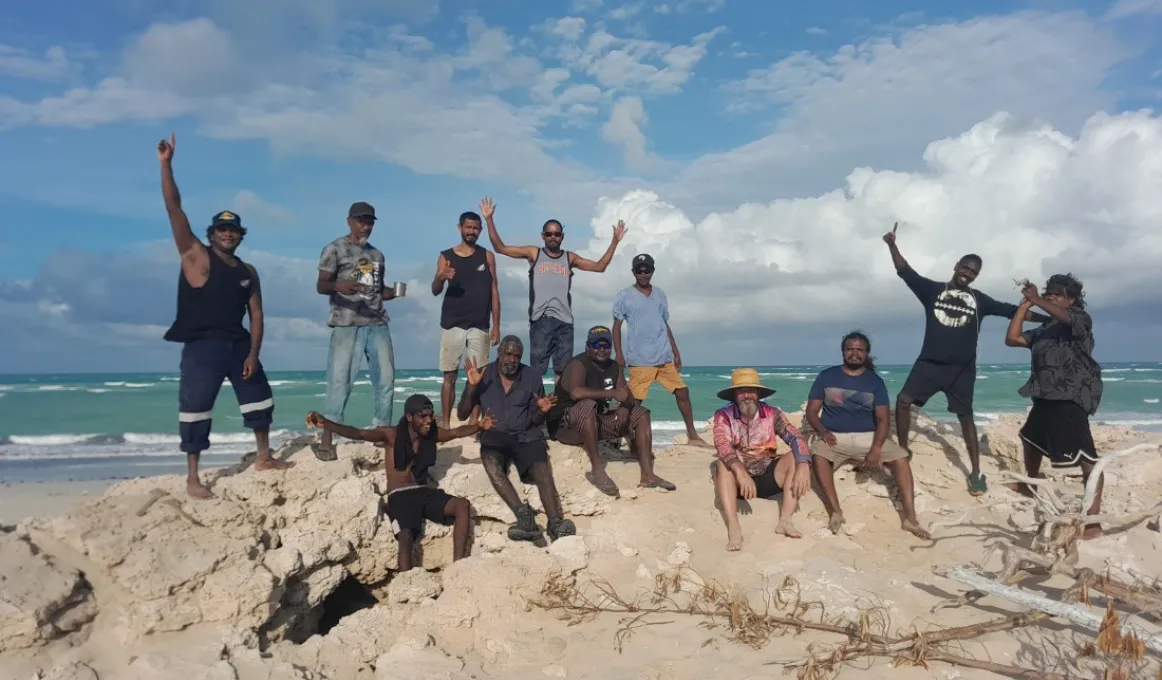Changing men’s attitudes to family domestic violence in the Kimberley

A culturally secure, trauma informed behaviour change program is reshaping men’s beliefs and attitudes towards Family Domestic Violence (FDV).
A culturally secure, trauma informed behaviour change program is reshaping men’s beliefs and attitudes towards Family Domestic Violence (FDV).
The Change Em Ways program in Yawuru country Broome, Western Australia is for Aboriginal men perpetrators of FDV. The program also provides services in a holistic approach to improve family relationships within households.
Since 2018, Change Em Ways has worked with over 200 men and their families in the region.
The program is run by Men’s Outreach Service Aboriginal Corporation and consists of an On Country Camp, 15 intensive workshop sessions across 8 weeks, and regular On Country days.
Team Leader Men’s Outreach Service Aboriginal Corporation, Debbie Medhurst says there are many challenges for program participants.
‘Working with men who use violence and their families can be challenging due to the many intersecting issues relating to FDV that exist in the Kimberley region,’ Debbie says.
’Issues such as intergenerational trauma, homelessness, overcrowding, mental health, drug and alcohol abuse, and cultural obligations, can hinder an individuals' ability to fully engage in the program.’
The Change Em Ways workshops and camps are designed to address these issues.
All workshops begin with a 3 day on country camp led by a Cultural Guidance Worker and attended by male co-facilitators.
The introductory camp fosters trust and peer-to-peer relationships among participants, creating a culturally safe environment for discussing challenging topics related to family violence.
The in-town workshops, led by male and female co-facilitators, employ interactive techniques such as videos, role-plays, and discussions to challenge the values and beliefs that perpetuate violence.
Topics covered in the workshop include an introduction to what is FDV, discussions around the impact of colonisation and intergenerational trauma, looking at how violence impacts families, children and communities, jealousy and trust, the cycle of violence, stages of change, healthy relationships, alcohol and other drugs, managing emotions, and personal goal setting, among other topics.
As part of the program, partner support is provided to partners and ex-partners with a focus on enhancing safety for them and their families.
Debbie says the program is highly regarded in the local community, as evidenced by the consistently high number of referrals they receive, and an independent evaluation has found it to be effective.
“There is strong evidence to suggest that the program is meeting the short term goals of changing men’s beliefs and attitudes towards FDV, its underlying causes and improving cultural connections.
‘There is also evidence of men taking increased responsibility for their actions and improved sense of wellbeing and self-agency, after completing our program.
"I referred myself because I knew I needed help again. It's the only place I know I can get help for my anger, violence, and alcohol abuse. The first time, I just wanted to walk out of the room. I wasn't ready – I just wanted to keep sleeping in. Now I want to get up – I felt ready, I know I can make a change in myself," says a client describing his experience.
‘It is however difficult to measure ‘success’ in men’s behaviour change work, and there is no clear or consistent way to measure it in the field of FDV, since so much of the issue remains unreported.’
If feedback is any indicator, the program is making a big difference.
Another client also spoke of his experience, "the first camp is exactly what I needed – just to be among men, sober, no drugs, no negative distractions... and breaking the rules about not talking bad about our partners and family. That was great, the best thing to crack into it. A good ice breaker. Perfect."
Find out more
The Change Em Ways service is co-funded through the Australian Government’s Indigenous Advancement Strategy for five Full Time Employment positions and administered by the National Indigenous Australians Agency.